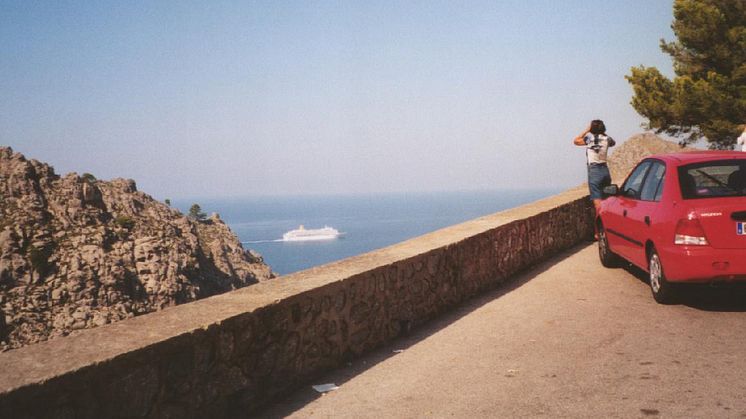
Press release -
Capital Gains: Europe’s Best Cities For A Pound-Stretching Break
- Prices fall in three-quarters of cities surveyed as strong pound boosts spending power across Europe (postoffice.co.uk/citycosts)
- Budget Budapest is the only bar to a Baltic States clean sweep
- Athens is Western Europe’s cheapest city – undercutting Lisbon
- Prague drops down table but is still cheapest for meals and drinks
City breaks have already overtaken beach holidays to become the most popular choice for UK tourists1 and this year there is an even better reason to head off to a European capital. Prices have plunged in three-quarters of the cities surveyed for the annual Post Office Travel Money City Costs Barometer and the increasingly powerful pound means city breakers will have up to 22 per cent more to spend than a year ago, equating to £90 extra on a £500 transaction2.
For the seventh year running Eastern European cities will offer bargain hunters the best value – taking seven of the leading 10 places in the Post Office Travel Money survey of 28 cities. Lithuanian capital Vilnius, the newest eurozone member, tops the chart after registering a fall of over 15 per cent year-on-year in the overall cost of the barometer basket3.
At £100.04 for a three-course evening meal for two with wine, drinks, two nights’ accommodation, airport transfers, sightseeing attractions and city transport, prices in Vilnius are well under half those of traditional favourites including Paris (£261.39), Rome (£276.83) and Amsterdam (£288.66).
It would be a clean sweep for the Baltic States, were it not for Budapest, which comes in second in the City Costs Barometer chart (£119.77). An 18.8 per cent fall in prices, the biggest drop in the barometer top 10, has enabled Riga (£120.39) to power past Lisbon and Prague and move up to third place from sixth last year. Completing the Baltic trio, Estonian capital Tallinn (£131.28, down 11.5 per cent) is in fourth place.
But Eastern European cities do not have a complete stranglehold on value. Athens (£131.35), new to the City Costs Barometer, enters the fray in fifth position. Boosted by the low cost of eating out at £29.15 for two, the Greek capital emerges as cheapest in Western Europe, taking that position from Lisbon (£141.37), which drops to eighth place. Prices in Athens are almost 55 per cent lower than in Amsterdam, the most expensive eurozone city.
Prague (£141.24) has fallen to seventh place because accommodation and sightseeing costs are higher than in other top performing cities. However, the Czech capital is still cheapest for meals and drinks. Eating out costs just £23.94 for two, while a bottle of beer is £1.13 and a coffee or Coca-Cola are each £1.08.
Dubrovnik is another eastern European city that has moved up the best value ratings on the back of low meal costs. At £32.52 for two, these are down 30 per cent and, together with the strong pound, have led to a 13.4 per cent barometer price fall. This takes the Croatian city to sixth place from eighth a year ago.
Krakow (£144.96) and Strasbourg (£169.60) complete the top 10 – two of five cities surveyed by Post Office Travel Money for the first time this year. Proving that French cities are not necessarily expensive, Strasbourg’s barometer total is over a third (35 per cent) cheaper than Paris (£261.39).
The other new cities surveyed by the Post Office are Madrid (£179.94) in 11th place, 26 per cent cheaper than Barcelona (£242.97, 20th in barometer), and Venice (£240.51, 19th in barometer), 13 per cent less than Rome (£276.83).
Andrew Brown of Post Office Travel Money said: “It’s a win/win situation for UK holidaymakers this year in European cities because prices are down in the majority of cities we surveyed, thanks to the soaring value of sterling. However, prices continue to vary significantly in different cities so it makes sense to do some holiday homework before taking the plunge and booking a capital break.
“Remember that the cost of meals and drinks will need to be added into the spending budget as city breaks are never All Inclusive holidays. Over the course of a two or three-night break, these can make a big difference to the cost of a city break and the low prices in Prague, Athens and Budapest will make these cities strong contenders for a bargain break to rival the Baltic States.”
For the third consecutive year, Stockholm (£311.01) is Europe’s most expensive city – although prices for UK visitors are down over 14 per cent. The biggest fall overall in the barometer was recorded in Vienna (£184.84) where the barometer basket has dropped by over 22 per cent.
In the USA, New York (£370.56) is almost four per cent cheaper than Boston (£385.33) and, while sterling is currently worth 9.4 per cent less against the dollar year-on-year, price falls in both cities will help to bridge the gap.
Among UK cities, a 14.7 per cent price fall has enabled Belfast (£198.10) to move ahead of Edinburgh (£210.75), while barometer prices are down 8.5 per cent in London (£266.65). The gap has widened this year between Belfast and Dublin (£238.99) to make the Irish capital over 20 per cent more expensive than its Northern Ireland competitor, despite registering an 7.8 per cent fall in prices.
City Cost Comparisons At A Glance:
Staying over: Riga (£36) offers the cheapest rate for a two-night stay in a three-star city centre hotel during April – under half the cost in 20 other cities. The price is over four times as high in Copenhagen (£145), Rome (£155) and Amsterdam (£174). Other cities where two nights’ accommodation is cheap include Tallinn (£42), Vilnius (£47), Budapest (£51) Athens (£54) and Dubrovnik (£55).
Getting around: 48-hour travel cards can cut the cost of city transport and the cheapest ones cost well under £4 in Riga and Tallinn. By comparison, a Venice travel card costs over £22. Taking a sightseeing bus tour ranges from £8-£20 in most European cities but costs as little as £6 (Dubrovnik) or as much as £29 (London). Airport-city centre transfers cost £2 or less in Krakow, Vilnius, Riga and Prague but up to £17.53 (Stockholm).
Culture costs: Copenhagen is best value because its top heritage attraction, museum and art gallery are free. Museums and galleries are also free in Belfast, Dublin, Edinburgh and London as are some of Europe’s most popular heritage sights including Berlin’s Brandenburg Gate and Notre Dame in Paris. Entry to three cultural attractions is also cheap in Vilnius (£3.47), Riga (£7.56), Krakow (£8.54) and Dublin (£8.60) but Amsterdam’s cultural treasures will set visitors back £33.63 and New York tops this at almost £45.
Andrew Brown said: “Holidaymakers are likely to incur a wide range of costs on a city break so our advice is to budget carefully and change enough travel cash before leaving home so you have sufficient spending money to cover these. Remember there are improved exchange rates for higher value Post Office branch or online transactions.”
City break holidaymakers can purchase euro over the counter at over 10,000 Post Office branches while more than 4,000 offer US dollars and Turkish lira. The other City Costs Barometer currencies are available on demand at over 1,600 branches. Up to 70 currencies can be pre-ordered at all 11,500 Post Office branches or online at postoffice.co.uk for next day branch or home delivery.
The full results of the 2015 Post Office Travel Money City Costs Barometer can be viewed online at: postoffice.co.uk/citycosts.
Ends
Categories
About the Post Office
The Post Office (Post Office Limited) has an unrivalled national network of over 11,500 branches across the UK, more than all the high street banks combined, and sits at the heart of communities in Northern Ireland, Scotland, Wales and England. The Post Office has made a commitment to maintaining its network of branches at its current size and reach. It provides around 170 different products and services spanning financial services including savings, insurance, loans, mortgages and credit cards; Government services; telephony; foreign currency; travel insurance and mail services.
The Post Office serves over 17 million customers a week and a third of small businesses. Some 99.7% of the total population live within three miles of a post office and over 97% live with one mile of a post office. For many rural communities, the post office is the only retail outlet. Post Offices branches remain highly valued and trusted, and are the focal point of many communities. For more information, visit http://www.postoffice.co.uk/.
Please note the Press Office team can only deal with enquiries from the media. Unfortunately they do not have access to customer information so can not help with customer enquiries.
If you have an enquiry regarding any Post Office product or service please visit postoffice.co.uk or call 0845 611 2970 Local call rates apply. Call costs may vary depending on your service provider. Calls may be monitored or recorded for training and compliance purposes.




